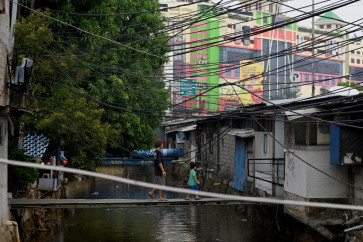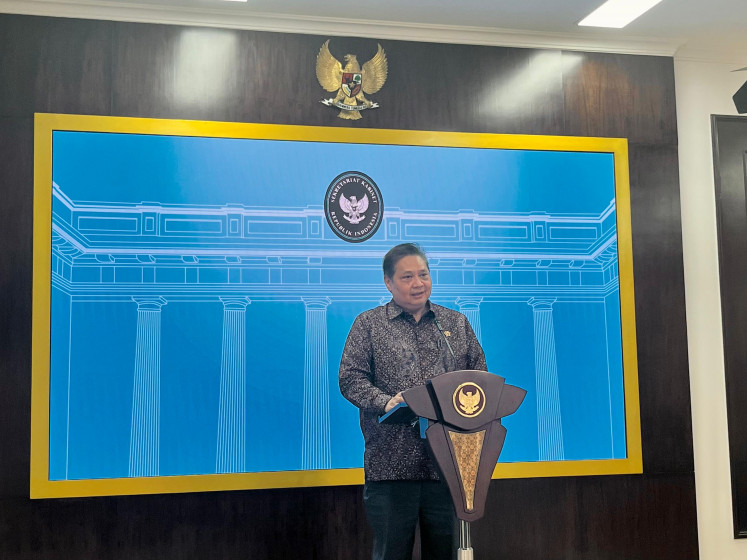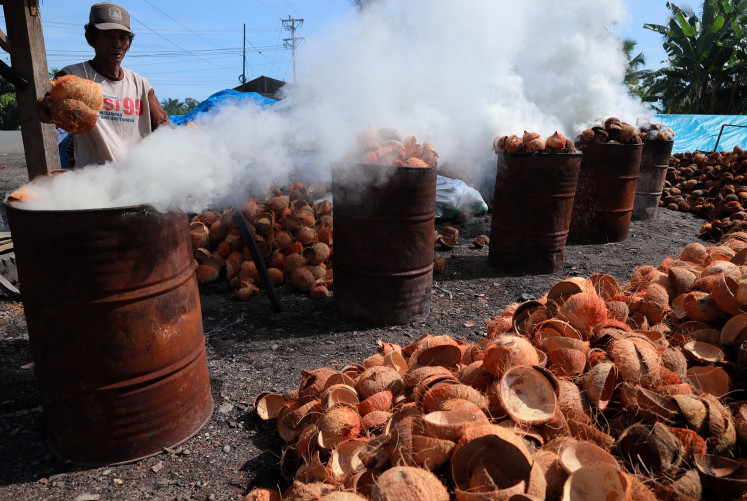69th Republic Day of India: Kampung Madras: Medan's very own 'Little India'
Puspha, a Medan resident of Indian descent, poses for a photograph in her shop selling Indian household items and accessories on Jl
Change text size
Gift Premium Articles
to Anyone

P
span class="caption">Puspha, a Medan resident of Indian descent, poses for a photograph in her shop selling Indian household items and accessories on Jl. Teuku Cik Ditiro in Medan, North Sumatra.(JP/Apriadi Gunawan)
A 70-year-old lady is relaxing inside a store selling Indian clothes and accessories on Jl. Teuku Cik Ditiro in Medan, North Sumatra. Accompanied by Indian songs heard in the background, the lady, named Puspha, patiently tends the store, awaiting customers who are specifically looking for Indian-made products in her establishment in Kampung Madras.
Kampung Madras is known as the heart of Indian culture in Medan. The urban village district, which was also popularly known as Kampung Keling (Black Kampung), is where Indians come to gather in Medan. Dubbed “Little India,” the area has street names adopting the names of cities in India, hence Jl. Kalkuta, Jl. Bombay, Jl. Nagapatam, Jl. Ceylon and Jl. Madras.
Kampung Madras, which belongs to Petisah subdistrict, is also home to SHRI Mariamman temple, a Hindu temple founded in 1881 by a monk named Sri Maryaman. And every day, hundreds of Hindu come to the temple, which stands on Jl. Zainul Arifin, to worship.
Puspha said the first Indians to arrive in Medan set foot in Kampung Madras, and that most of these people were ethnic Tamil. Hence, Tamil people are the dominant ethnic group in Kampung Madras.
Data reveals around 4,000 Tamils live in Kampung Madras, exceeding Sikh and Bombay ethnic groups.
“I am of Bombay descent. There are only hundreds of us here,” said Puspha to The Jakarta Post on Wednesday.
Puspha further said most people of Bombay descent living in Kampung Madras had been born in India. “I was also born in India. My parents brought me here,” she said, adding that she has seven siblings, three born in India and four in Medan.
Puspha said it had been seven years since she last visited India, and usually she and her siblings went there once every three years. She explained she couldn’t do so anymore due to lack of money.
“I miss going there. It’s been a while since I went home to India, but we don’t have enough money,” said Puspha, adding that lately the store didn’t have as much sales as before.
Unlike Puspha, Arul Nadien stated he was not keen on going to India, where his grandparents were from. The 63-year-old said he’d never been to India all his life. Arul, a retired Texmaco employee, added that none of his family members had ever gone to India.
“We’ve never imagined going to our ancestors’ hometown, even though we are of Tamil descent,” Arul said.
An Indian public figure in Medan, Nyanandren, 66, said more than 35,000 people of Indian descent were living in North Sumatra today. They are distributed in several regions and cities, like in the cities of Medan, Binjai, Pematang Siantar, Tebing Tinggi, as well as in Deli Serdang and Asahan regencies.
“The majority lives in Medan. We can find them in almost all districts,” said Nyanandren to the Post.
The customs office pensioner explained that Indians first came to North Sumatra in 1602. At the time, the Dutch colonial government brought plantation workers from India to Indonesia, notably to North Sumatra and Aceh, both prominent plantation regions.
Nyanandren said the Indians brought in to North Sumatra by the Dutch were placed in several locations in Medan. In time, they gathered in the one spot now known as Kampung Madras.
Nyanandren said the magnet that drew people to Kampung Madras had been the SHRI Mariamman temple.
According to Nyanandren, nowadays many people of Indian descent are leaving Kampung Madras. He said many ethnic Tamil sold their houses in Kampung Madras for economic reasons. Usually those who buy the houses are people of Chinese descent. The result is that many people of Chinese descent live in Kampung Madras.
“Indian descent people are no longer the dominant group in Kampung Madras; we, however, can live side by side comfortably with people of Chinese descent,” said Nyanandren.









